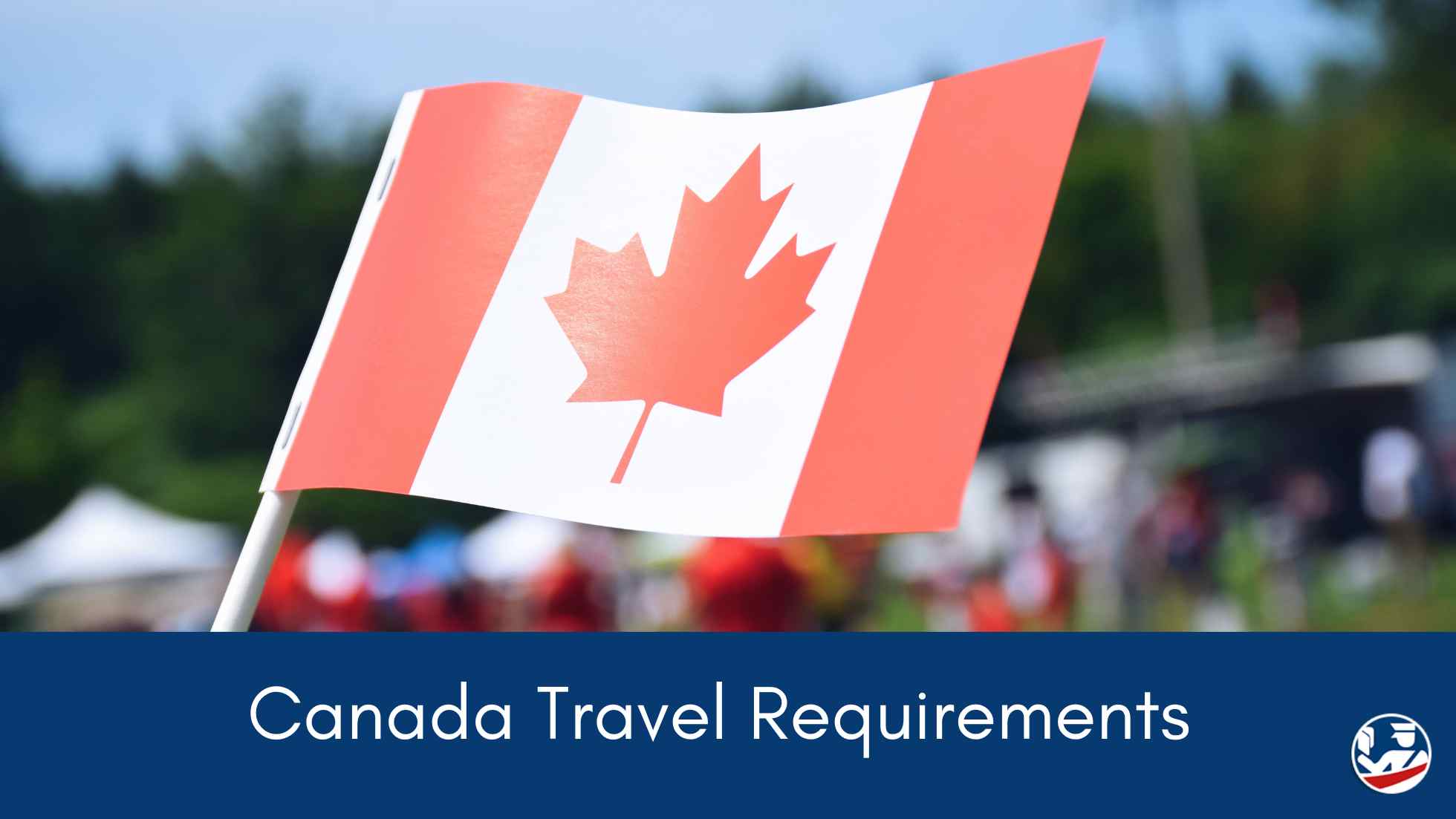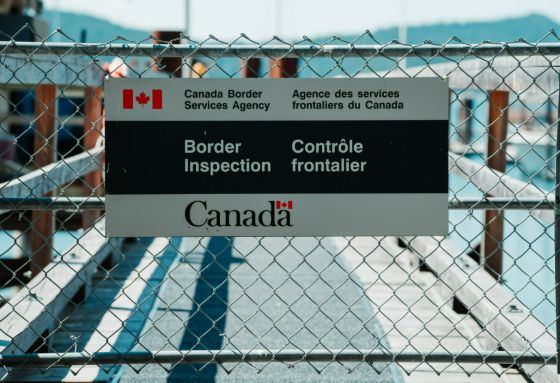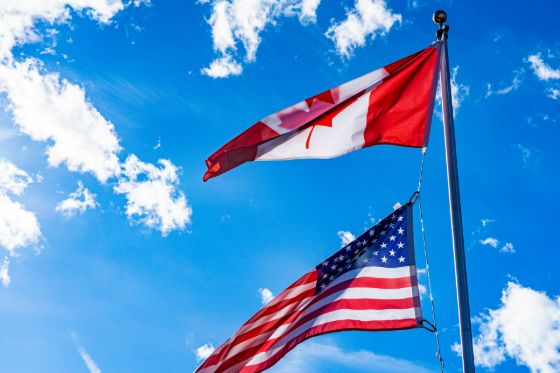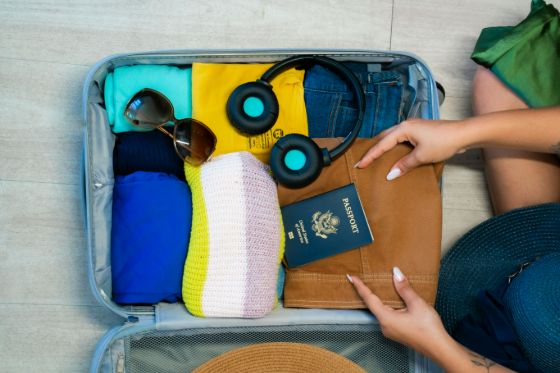

Over the past 20 years of helping readers like you with their travel document needs, one of the most frequently asked questions we get is:
Yes. Canadian law requires U.S. citizens to present a passport book or passport card to enter Canada. You also need a valid passport for all international travel by air.
If you don't have a passport, you have the option to use a WHTI-compliant travel document (more on these later). These are the only passport alternatives Americans can use to both enter Canada and re-enter the United States via a land or sea port of entry. Birth certificates and driver's licenses are not good enough.
Unfortunately, many U.S. citizens realize this too late. If you try to cross the Canadian border by land or sea without proper documentation, you will be turned away by the agents of the Canada Border Services Agency (CBSA).
A visa is not required for U.S. citizens to visit Canada for up to 180 days. Anyone seeking to enter Canada for any purpose other than a visit (e.g. to work, study or immigrate) must qualify for the appropriate entry status and should contact the Canadian Embassy (or nearest consulate) and visit the Canadian immigration website.
If you are planning a trip to Canada soon, you need to explore your expedited passport processing options. Otherwise, the processing time for a new passport or passport renewal currently takes 6 to 8 weeks , however it can take longer depending upon demand and world events. Some alternative forms of proof, like the NEXUS card, can take up to 6 months to get.
For the quickest turnaround time, using a registered passport courier service is the best option. These experts can help you apply for and get a passport book or passport card fast-sometimes in as few as 24 hours.
Check out or directory of top passport expediting services. Many of these businesses have multiple offices across the US at the ready to help you get a new passport or renew an existing one quickly and without hassle. With their help, you can save both time and money compared to the costs of getting a rushed passport on your own.

U.S. citizens haven't always needed a passport to enter Canada.
Before June 1, 2009 Canadian law allowed all American citizens to enter Canada by showing a government-issued photo ID (e.g. driver's license) and proof of U.S. citizenship such as a U.S. birth certificate, naturalization certificate, proof of Indian status, or an expired U.S. passport. Those days are over.
Furthermore, even if Canada still allowed entry with only these forms of identification, the United States does not accept these documents as sufficient proof to re-enter the United States. Regardless of what Canadian law requires or what other proof is sufficient for Canadian citizens, American travelers entering Canada must be able to present acceptable proof of US citizenship to re-enter the United States.
Again, a valid passport book is the best and most versatile option for meeting both American and Canadian requirements; but they are not the only options.
The Western Hemisphere Travel Initiative (WHTI) allows for several different types of travel documents to be used to cross back and forth across the U.S.-Canadian border. In most cases, these are both more limited in their usefulness and more time consuming to get compared to a passport book.
One of the WHTI-compliant documents for crossing the land border is the U.S. Passport Card. The card may not be used to travel by air. It is only available to U.S. citizens (not green card holders or other non-citizen residents). All eligible American travelers are encouraged to apply for a U.S. passport card well in advance of anticipated travel to avoid any problems.
The following items are considered valid WHTI identification documents for traveling to Canada:
While a valid passport book is the only travel document you can use for international air travel, the rest of the options listed above can be used at most land and sea ports of entry to Canada. They are also accepted when you leave Canada and attempt to re-enter the United States via any land border or sea border crossings.
Both the U.S. and Canadian governments urge frequent travelers, who must cross the border regularly to join the NEXUS Trusted traveler program.
WHTI documents (like the NEXUS card) simplify entering Canada by land or sea for frequent travelers in a number of ways:
If you are an American citizen and plan on entering Canada by land or sea, the WHTI offers a great way to travel to Canada without a passport.
But remember: if you are planning to fly in or out of Canada, you need a passport book. There is no passport card, WHTI document, or Trusted Traveler Program card that will allow you to board a flight.
The Canada Border Services Agency (CBSA) has introduced an optional feature called "Advance CBSA Declaration." This program allows travelers to submit their customs and immigration declaration up to 72 hours before arriving in Canada, enhancing the speed and ease of entry.
The Advance CBSA Declaration is currently only available for use at selected Canadian international airports:
The application process involves several steps including providing some specific details about your trip and travel plans. You save time and can complete the process electronically through reputable visa expediting experts, iVisa.

U.S. citizens under the age of 16 (or under 19, if traveling with a school, religious, cultural organization, or other youth group) need only present a birth certificate (original, photocopy, or certified copy), Consular Report of Birth Abroad, or naturalization certificate to visit Canada. This is also sufficient for re-entry into the U.S.
All citizens are required to present a valid U.S. passport book to enter or re-enter the United States via air-regardless of age.
There are also additional requirements a minor's parents or legal guardian(s) need to fulfill.
If you plan to travel to Canada with a minor who is not your child or for whom you do not have full legal custody, the Canada Border Services Agency may require you to present a notarized affidavit of consent from the minor's parents or legal guardian(s).
There is no specific form for this document, but it should be a signed statement that includes:
You can use our minor travel consent form and save yourself the time and effort of drafting one on your own.
Minors aged 16 through 18 (that are not part of one of the aforementioned traveling groups) must follow the same rules as adults to enter the United States via sea and land borders. They can show either a valid passport, passport card, Enhanced Drivers License, or another Western Hemisphere Travel Initiative (WHTI)-compliant document at the border.
There are also unique considerations for unaccompanied minors traveling by air to Canada without a parent or legal guardian.
Just like with adult air travel, a passport book is required for a minor flying internationally.
Most airlines comply with the U.S. Department of Transportation's general guidelines for unaccompanied minors traveling by air. That said, each airline can set its own guidelines.
You can expect additional fees when booking a flight for an unaccompanied minor, but it usually comes with additional perks like preferential seating, personal escorts on and off the plane, and additional attention and supervision throughout the flight.
For more, be sure to check out our guide to unaccompanied minor travel. There you will find more specifics about the rules, documentation, and options for helping a child travel to Canada (or any international destination) on their own.

Canada defines a "business visitor" as anyone who enters the country to "take part in international business activities without being part of the Canadian labor market."
The term business activities includes travel focused on:
For business travel, Canada requires a list of documents and authorizations before you can enter the country:
Attempting to conduct business affairs in Canada without the proper documentation and permissions can lead to fines, detention, and deportation depending upon the severity.

It is possible to be both a U.S. and Canadian citizen. This dual-nationality status allows people the opportunity to be permanent residents of both countries.
Dual citizens are expected to follow the rules and laws of the country where they physically are. For instance, Canadian citizens need a valid Canadian passport to board a flight to or through Canadian airports. American citizens need a passport to do the same at American airports.
There is one notable exception for American-Canadian dual citizens: the combination of a U.S. passport and proper proof of Canadian citizenship can be used to enter Canada by air, land, or sea.
Acceptable proof includes items such as:

There are specific rules regarding what American citizens entering Canada are allowed to bring across the border. Canadian law is very clear about these regulations. Failure to comply can lead to substantial fines, deportation, and even a permanent bar from Canada altogether.
Please note that regulations and restrictions are subject to change, so it's always a good idea to consult the official website of the Canada Border Services Agency (CBSA) or contact them directly for the most up-to-date information.
It is important to remember that customs officers at the border have the final authority to determine what can and cannot be brought into Canada. To ensure a smooth entry, be sure to declare all items you are bringing with you and comply with the regulations and restrictions in place.
Again, for the most accurate and up-to-date information, including the most current downloadable forms, please consult the CBSA website or contact them directly.

As an American citizen, you can bring your car into Canada and drive it using your state-issued driver's license and valid car insurance.
An International Driving Permit (IDP) is only required if you plan on renting or purchasing a vehicle while in Canada. Some provinces also require an IDP if you plan on using your own vehicle from the U.S. for more than 90 days.
You must follow all local traffic laws while driving in Canada. Some of the most important rules include:
If you plan to drive into Canada, be sure to check out our guide to the 5 Huge International Road Trip Mistakes Americans Make.
In Canada, the statute for DUI covers equivalent U.S. charges of DUI, physical control of a vehicle-moving or not-under the influence, and DUI as a minor. These are indictable offenses and, therefore, grounds to deny entry to the country if you are a foreign national.
You are considered rehabilitated ten years after the completion of your DUI sentence and are eligible to apply for rehabilitation five years after the completion of your sentence. If you're awarded rehabilitation, you're allowed into the country The process can take several months to complete.
If you've ever been convicted of a DUI or significant crime in the United States, and you're planning a visit to Canada you will likely be turned away. Approaching a Canadian land border without researching the current entry requirements ahead of time, or going through the proper process of a rehabilitation application is a roll of the dice.
You can try to enter by applying for a Temporary Resident Permit (TRP) at the border. This is a complicated process that requires proof of why you should be granted access (e.g. a family emergency). If you are denied a TRP request, you cannot appeal. The decision is final.
While it's possible to gain admittance to Canada with a temporary resident permit, the Canadian government rarely grants these requests. More often than not, you'll be refused entry, and lose your non-refundable $200 application fee.
If you are traveling to Canada and have a criminal record of any kind, the best idea is to first contact an experienced immigration lawyer in the province where you plan to travel. This will help you avoid any legal surprises at the border or upon arrival.
Visiting Canada is one of the most popular forms of international travel for U.S. citizens. As with all travel abroad, the key to a successful trip is being prepared.
While you don't need a passport to visit Canada, it is, by far, the most versatile and useful form of travel documentation you can have. If you plan on travelling soon and need to get a passport quickly, you can schedule an appointment at the nearest regional agency or rush your passport application with the help of a registered passport courier service. Be sure to visit our directory of the top passport expediting services to find trusted and reliable help for your travel document needs.
It is also important to know where to find the nearest Canadian embassy and consulates are located:
These are crucial contact points for any American abroad in Canada as they represent your most direct contact with the United States.
If you are still planning your trip, be sure to check out The 5 Best Canadian Cities for Americans to Visit so that you can experience everything Canada has to offer. While you're at it, be sure not to miss our 10 Canadian Travel Planning Tips to be sure you are fully prepared for your visit to our neighbor to the north.
1. How can you get a passport when you're in a hurry?
2. What exactly does a passport expediter do?
3. Are passport expediting services legitimate?
4. How can I identify a reliable passport expeditor?
5. Is expedited passport service worth it?
You can also visit our library of articles about passport expediting.
About the Author: For over 20 years, the U.S. Passport Service Guide team has helped hundreds of thousands of travelers with their travel document questions and shared advice about how to make traveling abroad simpler, safer, and more enjoyable.